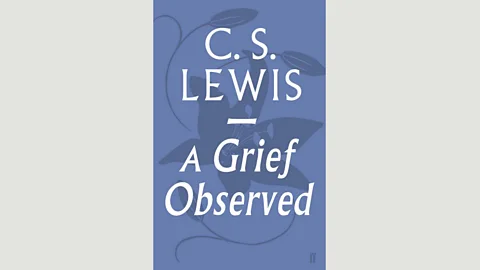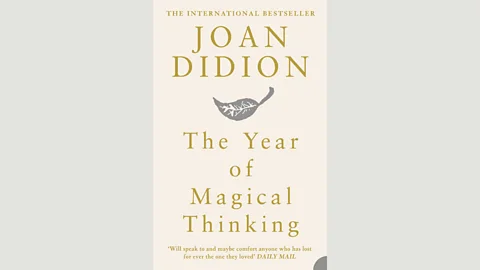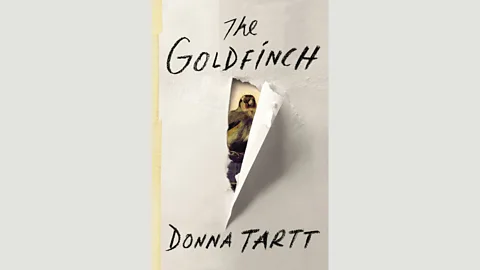Can books ease the pain of grief?
 Getty Images
Getty ImagesOne BBC Culture reader is struggling to cope after the loss of her twin. Literary agony aunt Hephzibah Anderson recommends the writers to help.
Dear Textual Healing,
My beloved twin sister ed away six months ago and I'm still grieving deeply. It's not that I want to push away the pain but the way I have lost hope is frightening. I come from a pretty dysfunctional and loveless family so I don't have any from other family . (My sister and I have ed each other all those years.) I feel so lonely and hopeless and do not know how to go in without her. Also, I find it very difficult to take care of my own needs right now, to be kind to myself. During the years of my sister's illness I lost most of my friends as taking care of her and my child was all I ever did. Do you have any books to recommend for finding hope and some pleasure in life again?
Thanks and Kind regards,
Ute
Dear Ute,
The death of a loved one is perhaps the toughest challenge that any of us are likely to have to face. Added to that, you’ve lost a twin, and as literature shows over and over – from Shakespeare’s Viola and Sebastian to Lewis Carroll’s Tweedledum and Tweedledee – the closeness that you’ve been fortunate enough to know is unique.
Recently, author and Facebook COO Sheryl Sandberg opened up about losing her husband and the father of her young children in an accident. Her social media post swiftly went viral, and may well have reached you also, but what she said about how tragedy, when it strikes, presents a choice, bears repeating. “You can give in to the void, the emptiness that fills your heart, your lungs, constricts your ability to think or even breathe. Or you can try to find meaning”, she wrote. “These past thirty days, I have spent many of my moments lost in that void. And I know that many future moments will be consumed by the vast emptiness as well. But when I can, I want to choose life and meaning.” She also cited a one-line Jewish prayer that she said she would never have understood before: “Let me not die while I am still alive”.
That seems to be the gist of your plea, too, and the fact that you’re aware of the dangers and able to reach out for help shows you’ve already begun fighting back against the smothering emptiness of that void. In hours of darkness, books are invaluable companions. As Shakespeare noted, “Give sorrow words; the grief that does not speak whispers the o'er-fraught heart and bids it break”. As well as giving your sorrow words, a good book will take you out of yourself for a few hours, even as the plights of its characters might remind you that others have gone through similar ordeals. Just knowing that, and feeling less alone, will make you stronger.
‘The whole world is empty’
One place to start might be CS Lewis’s A Grief Observed, whose opening words will give you permission to be afraid. “No one ever told me that grief felt so like fear”, he writes. The book is strung together from reflections on the loss of his wife, American poet Joy Davidman, who died of cancer just four years into their marriage. Though best ed for children’s classics like The Lion, the Witch and the Wardrobe, Lewis was among other things a lay theologian, and coming from a devout Christian, his book was shocking to some. How could a person of faith feel such utter despair? He is still a believer in the book, it’s just that he is appalled by God’s cruelty. Regardless of your own beliefs, it’s Lewis’ acknowledgement of his bewilderment that makes the book so comforting.
 Faber and Faber
Faber and FaberFor a more humanistic approach, look to two recent memoirs that have already become modern classics: Joan Didion’s The Year of Magical Thinking and Cheryl Strayed’s Wild. For Didion, calamity was twofold. Shortly before Christmas in 2003, she and her husband of 40 years, John Gregory Dunne, had to watch their only daughter be placed on life in an induced coma. Then, the night before New Year's Eve, Dunne died of a massive heart attack. As Didion confides, “A single person is missing for you, and the whole world is empty”. Though slender, it’s a book filled with such truths, another of which may ring extra true for you as a twin: “We are imperfect mortal beings, aware of that mortality even as we push it away, failed by our very complication, so wired that when we mourn our losses we also mourn, for better or for worse, ourselves. As we were. As we are no longer. As we will one day not be at all”.
Didion was in her sixties when she lost her husband – and later her daughter. Strayed was just 22 when she found herself facing her mother’s death. The end of her marriage came next, and four years later, certain she had nothing more to lose, she decided to hike over a thousand miles of America’s Pacific Crest Trail, from the Mojave Desert through California and Oregon to Washington State – alone. It’s an extraordinarily tough and ultimately healing journey.
 Harper Perennial
Harper Perennial“Am I going in circles, or dare I hope I am on a spiral?” Lewis asks at one point, desperate for signs of progress. A few years later, in 1969, Swiss-born psychiatrist Elisabeth Kubler-Ross set about identifying the five stages of grieving in her seminal book On Death and Dying. “The five stages – denial, anger, bargaining, depression and acceptance – are a part of the framework that makes up our learning to live with the one we lost”, she writes, adding a cautionary note: “They are tools to help us frame and identify what we may be feeling. But they are not stops on some linear timeline in grief”. Grief, as Lewis discovered, is anything but linear.
So, crucial though it is to be gentle with yourself, you must be patient, too. Think about setting modest goals that will allow you to make measurable progress, no matter how slight. You might start by picking up a collection of verse, and making a deal with yourself to find time to sit quietly, empty your mind as much as you can, and read just one poem a day. Poems of Mourning, an anthology in the Everyman’s Library Pocket Poets series, could be just the book. It’s hard to resist picking up because it’s so beautiful – a petite hardback complete with a ribbon bookmark, and costing not a whole lot more than the average paperback. There’s joy to be had from simply holding it in your hands, but open it up and you’ll find language whose musicality and sheer loveliness is transcendent. Ben Jonson pines for his lost son, Wilfred Owen commemorates comrades lost in battle, and WH Auden sings the Funeral Blues. As these pages reveal, there is no right or wrong way to go about the grieving process – Tennyson’s melancholy is black and Walt Whitman’s radiant, while Christina Rossetti reaches a place of resignation.
 Abacus
AbacusI have one more suggestion. Donna Tartt’s The Goldfinch is a novel that begins with a young boy losing his mother, so while there’s nothing escapist about the story that unfolds, its grip is utterly unremitting. If ever there’s a book to draw you out of yourself and remind you of the special pleasure of reading, this is it. As Tartt’s young protagonist stumbles motherless through the rest of his childhood, you’ll also be reminded of how lucky your own child is to have you. You may feel like you’ve been failing these past few months, but ultimately, having known that deep bond with your twin sister will make you better able to be the loving – and, yes, cheerful – mother that your child deserves. When you’re feeling a little stronger, try to the words of playwright and novelist Thornton Wilder: "The greatest tribute to the dead is not grief but gratitude”.
Send an email to [email protected] describing a problem in your life that you need some help with. Hephzibah Anderson will prescribe the books that offer the best advice for your situation. Submissions should be 200 words or fewer and may be edited prior to publication.
